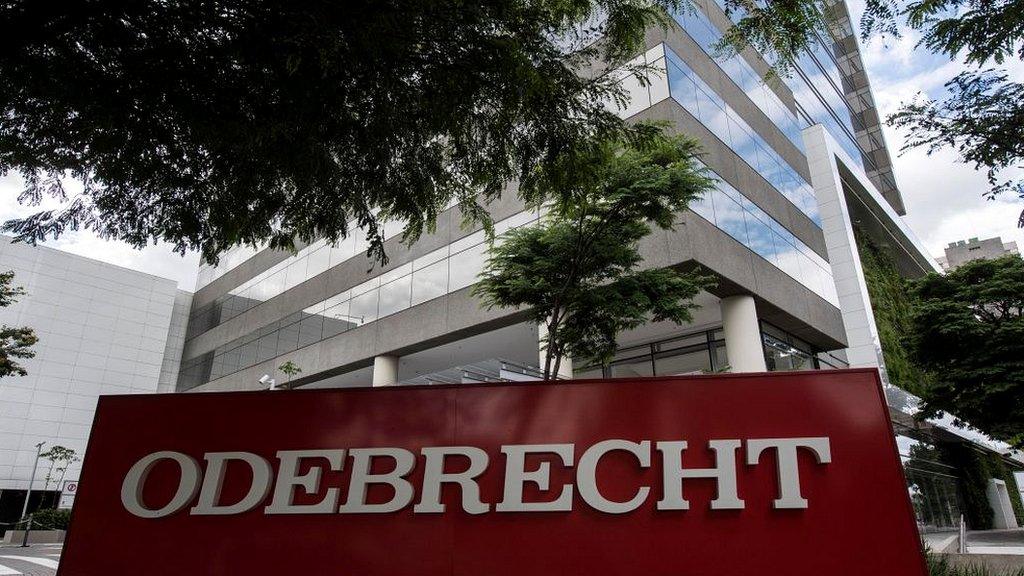Brazil meat scandal: China and EU suspend imports
- Published
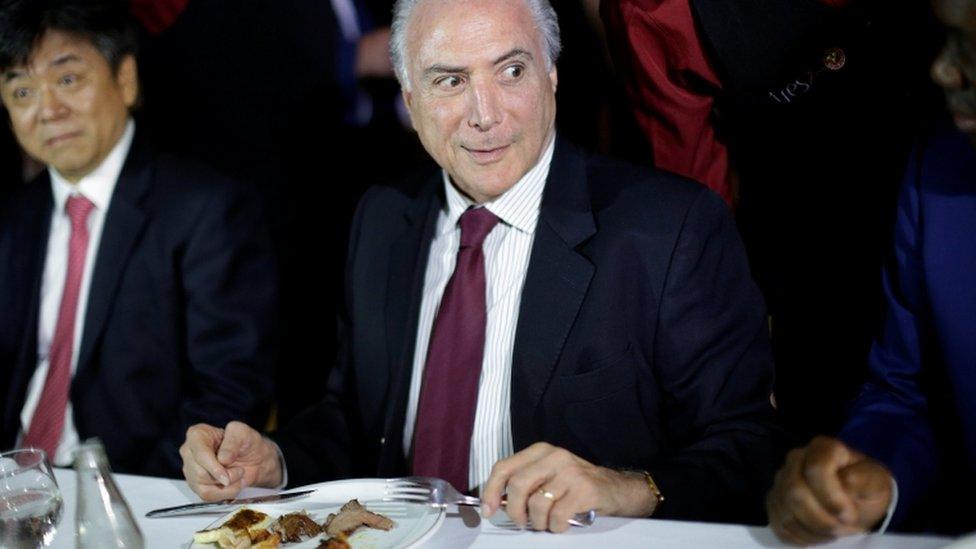
Mr Temer invited foreign diplomats to a steak house in Brasilia on Sunday evening
Some of the biggest consumers of Brazilian meat have suspended imports over allegations that companies have been selling unsafe produce for years.
China has banned red meat imports from Brazil, while the European Union said it would stop buying from companies implicated in the scandal.
The crisis was triggered by a huge federal police operation on Friday.
It found evidence that meat-packers had been selling rotten and substandard produce for several years.
The meat industry plays an important part in the Brazilian economy, with exports worth more than $12bn (£9.7bn) a year.
The Brazilian government has done all it could to avoid a total or partial ban on meat imports from other countries.
President Michel Temer held emergency meetings during the weekend and even invited foreign diplomats to a steak house on Sunday evening to try to reassure them.
"The Brazilian government reiterates its confidence in the quality of a national product that has won over consumers and obtained the approval of the most rigorous markets," said Mr Temer.
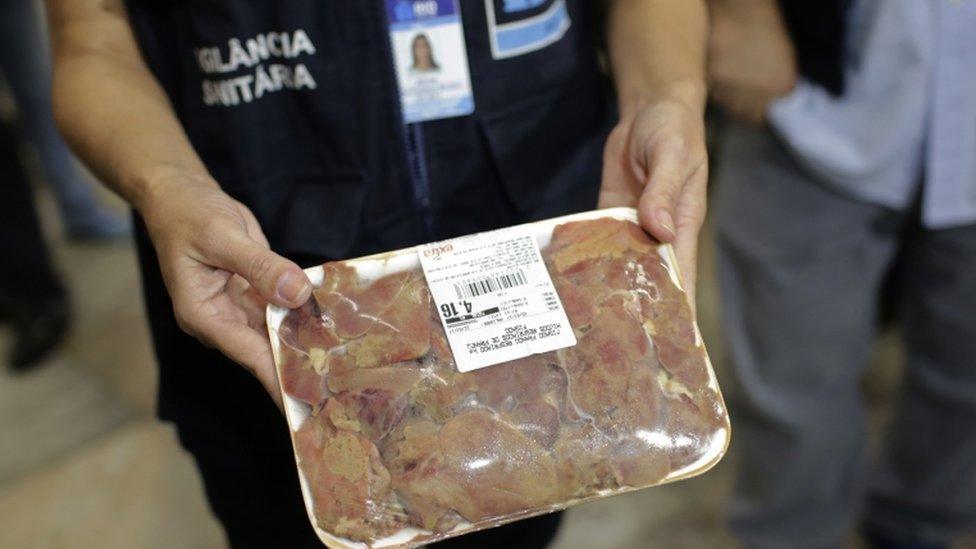
Brazilians have become concerned about the quality of the meat they consume
But the effort was in vain. China, the EU, South Korea and Chile have now announced restrictions on Brazilian meat products.
Together they accounted for nearly one third of Brazilian meat exports in 2016, O Globo newspaper reported.
Brazil is the world's biggest red meat and poultry exporter.
On Friday, federal police raided meat-producing plants and arrested more than 30 people.
The government suspended more than 30 senior civil servants who should have spotted the unhygienic and illegal practices.
They are being investigated for corruption.
Three meat-packing plants have been closed and another 21 are being investigated.
Mr Temer said the plants under scrutiny represented a tiny proportion of Brazil's meat industry.
"Only 21 units out of 4,837 in Brazil subject to government inspection are facing allegations of irregularities. And only six of them have exported in the past 60 days," said Mr Temer at a meeting with foreign diplomats on Sunday.
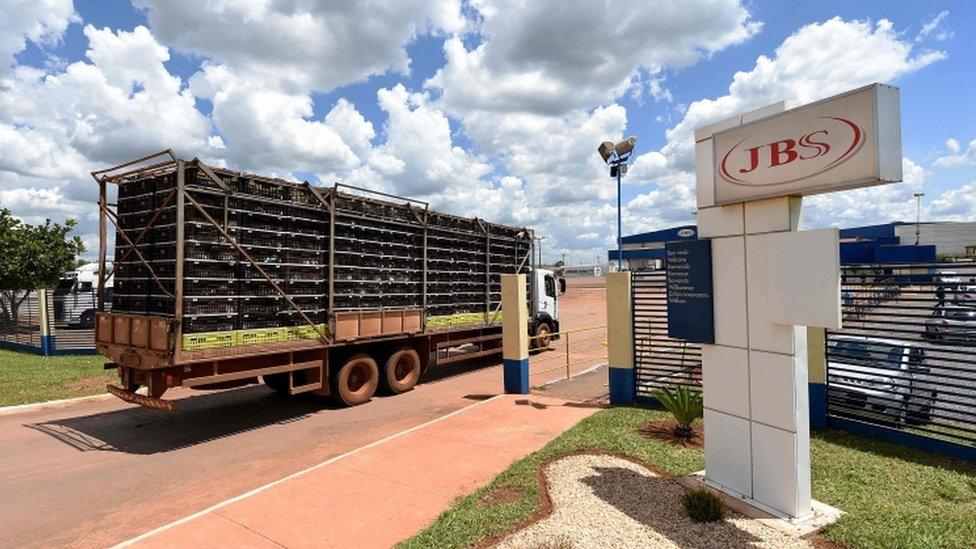
Both JBS and BRF say they are co-operating with the police
Operation Weak Flesh was launched in the early hours of Friday in six Brazilian states after a two-year investigation.
Federal police carried out raids in 194 locations, deploying more than 1,000 officers.
The investigators allege that some managers bribed health inspectors and politicians to get government certificates for their products.
They accuse more than 30 companies of a number of unhygienic practices. Among them are JBS, the world's largest beef exporter, and BRF, the world's top poultry producer.
"They used acid and other chemicals to mask the aspect of the product. In some cases, the products used were carcinogenic," the police said.
Both JBS and BRF said they followed high quality standards and sanitary regulations.
Prosecutors say a percentage of the bribe money was paid to two parties from the governing coalition - the PP and President Michel Temer's PMDB.
- Published24 June 2015
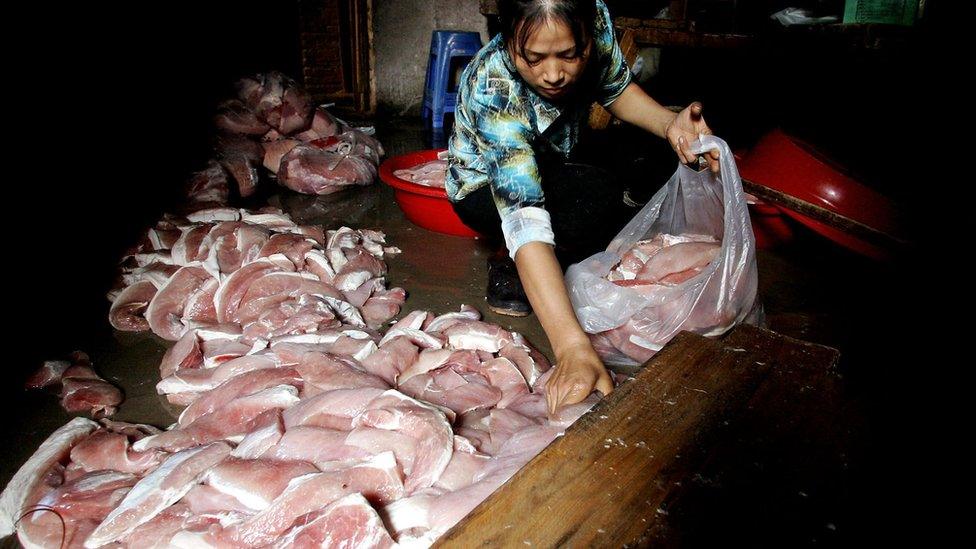
- Published28 January 2014
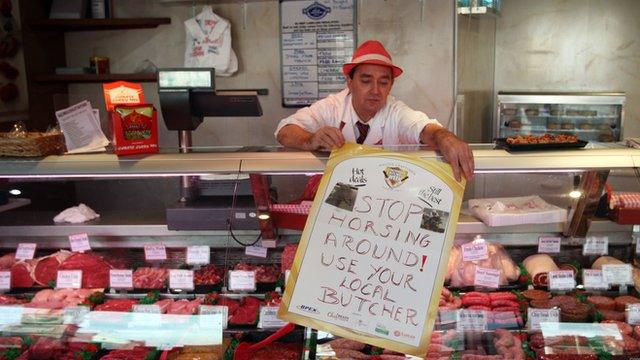
- Published17 April 2019
